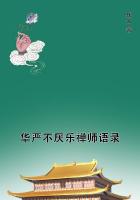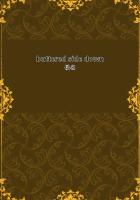Kasatsky entered the monastery on the feast of the Intercession of the Blessed Virgin. The Abbot of that monastery was a gentleman by birth, a learned writer and a starets, that is, he belonged to that succession of monks originating in Walachia who each choose a director and teacher whom they implicitly obey.
This Superior had been a disciple of the starets Ambrose, who was a disciple of Makarius, who was a disciple of the starets Leonid, who was a disciple of Paussy Velichkovsky.
To this Abbot Kasatsky submitted himself as to his chosen director. Here in the monastery, besides the feeling of ascendency over others that such a life gave him, he felt much as he had done in the world: he found satisfaction in attaining the greatest possible perfection outwardly as well as inwardly. As in the regiment he had been not merely an irreproachable officer but had even exceeded his duties and widened the borders of perfection, so also as a monk he tried to be perfect, and was always industrious, abstemious, submissive, and meek, as well as pure both in deed and in thought, and obedient. This last quality in particular made life far easier for him. If many of the demands of life in the monastery, which was near the capital and much frequented, did not please him and were temptations to him, they were all nullified by obedience: 'It is not for me to reason; my business is to do the task set me, whether it be standing beside the relics, singing in the choir, or ****** up accounts in the monastery guest-house.' All possibility of doubt about anything was silenced by obedience to the starets. Had it not been for this, he would have been oppressed by the length and monotony of the church services, the bustle of the many visitors, and the bad qualities of the other monks. As it was, he not only bore it all joyfully but found in it solace and support. 'Idon't know why it is necessary to hear the same prayers several times a day, but I know that it is necessary; and knowing this Ifind joy in them.' His director told him that as material food is necessary for the maintenance of the life of the body, so spiritual food--the church prayers--is necessary for the maintenance of the spiritual life. He believed this, and though the church services, for which he had to get up early in the morning, were a difficulty, they certainly calmed him and gave him joy. This was the result of his consciousness of humility, and the certainty that whatever he had to do, being fixed by the starets, was right.
The interest of his life consisted not only in an ever greater and greater subjugation of his will, but in the attainment of all the Christian virtues, which at first seemed to him easily attainable. He had given his whole estate to his sister and did not regret it, he had no personal claims, humility towards his inferiors was not merely easy for him but afforded him pleasure.
Even victory over the sins of the flesh, greed and lust, was easily attained. His director had specially warned him against the latter sin, but Kasatsky felt free from it and was glad.
One thing only tormented him--the remembrance of his fiancee; and not merely the remembrance but the vivid image of what might have been. Involuntarily he recalled a lady he knew who had been a favourite of the Emperor's, but had afterwards married and become an admirable wife and mother. The husband had a high position, influence and honour, and a good and penitent wife.
In his better hours Kasatsky was not disturbed by such thoughts, and when he recalled them at such times he was merely glad to feel that the temptation was past. But there were moments when all that made up his present life suddenly grew dim before him, moments when, if he did not cease to believe in the aims he had set himself, he ceased to see them and could evoke no confidence in them but was seized by a remembrance of, and--terrible to say--a regret for, the change of life he had made.
The only thing that saved him in that state of mind was obedience and work, and the fact that the whole day was occupied by prayer.
He went through the usual forms of prayer, he bowed in prayer, he even prayed more than usual, but it was lip-service only and his soul was not in it. This condition would continue for a day, or sometimes for two days, and would then pass of itself. But those days were dreadful. Kasatsky felt that he was neither in his own hands nor in God's, but was subject to something else. All he could do then was to obey the starets, to restrain himself, to undertake nothing, and simply to wait. In general all this time he lived not by his own will but by that of the starets, and in this obedience he found a special tranquillity.
So he lived in his first monastery for seven years. At the end of the third year he received the tonsure and was ordained to the priesthood by the name of Sergius. The profession was an important event in his inner life. He had previously experienced a great consolation and spiritual exaltation when receiving communion, and now when he himself officiated, the performance of the preparation filled him with ecstatic and deep emotion. But subsequently that feeling became more and more deadened, and once when he was officiating in a depressed state of mind he felt that the influence produced on him by the service would not endure.
And it did in fact weaken till only the habit remained.
In general in the seventh year of his life in the monastery Sergius grew weary. He had learnt all there was to learn and had attained all there was to attain, there was nothing more to do and his spiritual drowsiness increased. During this time he heard of his mother's death and his sister Varvara's marriage, but both events were matters of indifference to him. His whole attention and his whole interest were concentrated on his inner life.















